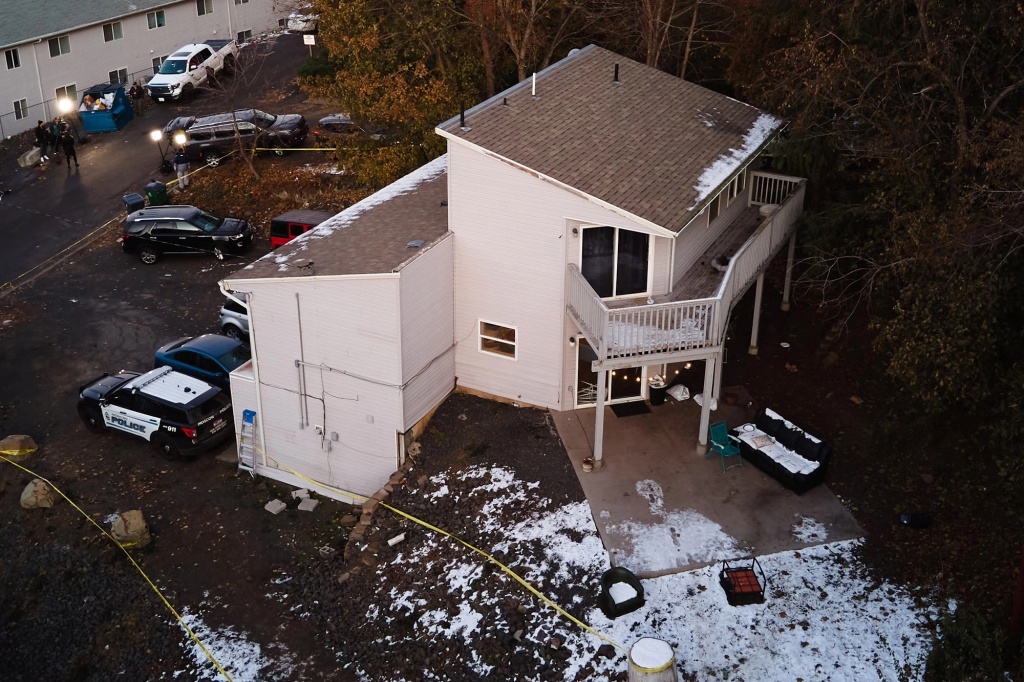Surviving Idaho roommate thought noise from killings was partying: report
A survivor of the University of Idaho killings allegedly thought sounds from her four roommates being brutally slain was just noisy partying — and may have passed out after running into accused killer Bryan Kohberger.
Dylan Mortensen, 21, allegedly called out to her friends to quiet down after she mistook the commotion for partying, a source close to the case told NewsNation.
Mortensen allegedly opened her bedroom door around 4 a.m. and yelled: “Calm down, you’re being loud!” and “I’m trying to sleep!”
She then closed her door and locked it, according to the source.
After hearing still more loud noises that night, Mortensen opened her door again and saw the accused killer, who she assumed was a party-goer, the source said.
In another report, Mortensen told authorities she had seen an unknown “figure clad in black clothing and a mask” walking past her toward the home’s back exit just after 4 a.m. on Nov. 13.
The police were not called to the off-campus house for another eight hours. Authorities believe the four students were killed sometime between 4 and 4:25 a.m.
Kohberger, 28, was arrested in December at his parent’s home in Albrightsville, Pennsylvania, and charged in the murders of Kaylee Goncalves, 21, Madison Mogen, 21, Xana Kernodle, 20, and Ethan Chapin, 20.

Their two other roommates, Mortensen, and 21-year-old Bethany Funke were home at the time of their killings.
While it remains unclear why it took eight hours for the two surviving roommates to call the police, former FBI agent Jennifer Coffindaffer speculated Mortensen may have been paralyzed with fear after seeing an unknown man wearing all black and a mask inside her home late at night.
Coffindaffer suggested Mortensen may have “passed out” due to stress or fear after coming face to face with Kohberger.
“Let’s talk DM: -21 -Late -Possibly under the influence -Face to Face with stranger in black feet away -Froze due to Fear -Locked herself in BR -I believe DM passed out from trauma/fear/stress -To think you could be killed is gripping; I know #idahosuspect,” she tweeted Jan. 6.

Coffindaffer also posted an article from Medical News Today that explains the fight, flight or freeze response, and how it exists to “keep people safe, preparing them to face, escape, or hide from danger.”
According to the article, while a person who is “frozen” in fear is unable to take action against the danger, they are “extremely alert.” Another potential reaction is tonic immobility or “flop,” which involves becoming completely physically or mentally unresponsive, and may even involve fainting.
An Idaho law enforcement source told The Post the delay in notifying authorities was something that puzzled investigators, who weren’t sure if it was “an issue of intoxication, or of fear.”
Read the full article Here


